第181章 Lectures XVI and XVII(10)
The Buddhists used the word "samadhi" as well as the Hindus; but "dhyana" is their special word for higher states of contemplation. There seem to be four stages recognized in dhyana. The first stage comes through concentration of the mind upon one point. It excludes desire, but not discernment or judgment: it is still intellectual. In the second stage the intellectual functions drop off, and the satisfied sense of unity remains. In the third stage the satisfaction departs, and indifference begins, along with memory a self-consciousness. In the fourth stage the indifference, memory, and self-consciousness are perfected. [Just what "memory" and "self-consciousness" mean in this connection is doubtful. They cannot be the faculties familiar to us in the lower life.] Higher stages still of contemplation are mentioned--a region where there exists nothing, and where the mediator says: "There exists absolutely nothing," and stops. Then he reaches another region where he says: "There are neither ideas nor absence of ideas," and stops again. Then another region where, "having reached the end of both idea and perception, he stops finally." This would seem to be, not yet Nirvana, but as close an approach to it as this life affords.[247]
[247] I follow the account in C. F. Koeppen: Die Religion des Buddha, Berlin, 1857, i. 585 ff.
In the Mohammedan world the Sufi sect and various dervish bodies are the possessors of the mystical tradition. The Sufis have existed in Persia from the earliest times, and as their pantheism is so at variance with the hot and rigid monotheism of the Arab mind, it has been suggested that Sufism must have been inoculated into Islam by Hindu influences. We Christians know little of Sufism, for its secrets are disclosed only to those initiated.
To give its existence a certain liveliness in your minds, I will quote a Moslem document, and pass away from the subject.
Al-Ghazzali, a Persian philosopher and theologian, who flourished in the eleventh century, and ranks as one of the greatest doctors of the Moslem church, has left us one of the few autobiographies to be found outside of Christian literature. Strange that a species of book so abundant among ourselves should be so little represented elsewhere--the absence of strictly personal confessions is the chief difficulty to the purely literary student who would like to become acquainted with the inwardness of religions other than the Christian. M. Schmolders has translated a part of Al-Ghazzali's autobiography into French:[248]--
[248] For a full account of him, see D. B. Macdonald: The Life Of Al-Ghazzali, in the Journal of the American Oriental Society, 1899, vol. xx., p. 71.
"The Science of the Sufis," says the Moslem author, "aims at detaching the heart from all that is not God, and at giving to it for sole occupation the meditation of the divine being. Theory being more easy for me than practice, I read [certain books] until I understood all that can be learned by study and hearsay.
Then I recognized that what pertains most exclusively to their method is just what no study can grasp, but only transport, ecstasy, and the transformation of the soul. How great, for example, is the difference between knowing the definitions of health, of satiety, with their causes and conditions, and being really healthy or filled. How different to know in what drunkenness consists--as being a state occasioned by a vapor that rises from the stomach--and BEING drunk effectively. Without doubt, the drunken man knows neither the definition of drunkenness nor what makes it interesting for science. Being drunk, he knows nothing; whilst the physician, although not drunk knows well in what drunkenness consists, and what are its predisposing conditions. Similarly there is a difference between knowing the nature of abstinence, and BEING abstinent or having one's soul detached from the world.--Thus I had learned what words could teach of Sufism, but what was left could be learned neither by study nor through the ears, but solely by giving one's self up to ecstasy and leading a pious life.
"Reflecting on my situation, I found myself tied down by a multitude of bonds--temptations on every side. Considering my teaching, I found it was impure before God. I saw myself struggling with all my might to achieve glory and to spread my name. [Here follows an account of his six months' hesitation to break away from the conditions of his life at Bagdad, at the end of which he fell ill with a paralysis of the tongue.] Then, feeling my own weakness, and having entirely given up my own will, I repaired to God like a man in distress who has no more resources. He answered, as he answers the wretch who invokes him. My heart no longer felt any difficulty in renouncing glory, wealth, and my children. So I quitted Bagdad, and reserving from my fortune only what was indispensable for my subsistence, I distributed the rest. I went to Syria, where I remained about two years, with no other occupation than living in retreat and solitude, conquering my desires, combating my passions, training myself to purify my soul, to make my character perfect, to prepare my heart for meditating on God--all according to the methods of the Sufis, as I had read of them.